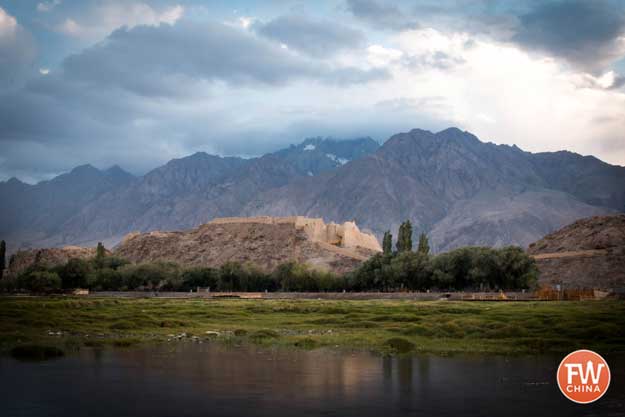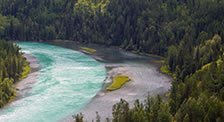6 Reasons to Live or Travel to Xinjiang
Why would you live or travel to Xinjiang, China’s far western region? Throughout the 10 years I was in Xinjiang, I received that questions more times than I can count, both from local Chinese and foreigners. What good reason is there to be in Xinjiang? Well, I actually have six.
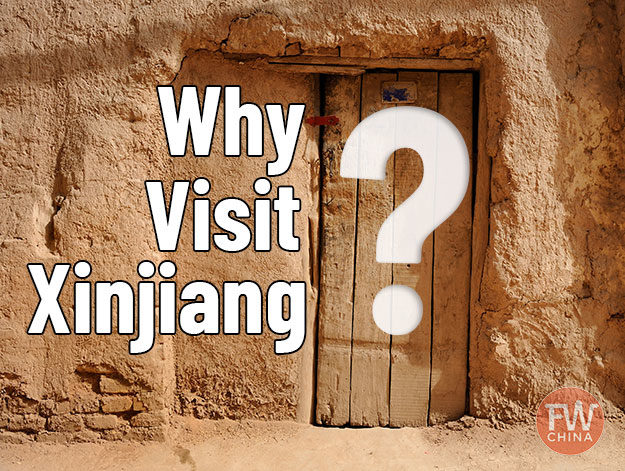
Do you ever look back on the path that has brought you to where you are today and found yourself straining to locate the direction you came from?
It’s like walking along a beach whose waves sweep away the very evidence of your footprints. When you to turn around to look behind you, the absence of footprints make you wonder if you’ve made any progress at all!
I always get that feeling whenever I’m asked this common question from friends, family, Chinese people and readers:
Why live in Xinjiang of all places?
I get it. Xinjiang is not a major hub or gathering place of expats like Beijing, Shanghai or Hong Kong are. It’s a challenging place to live and there doesn’t seem to be much up side.
The honest truth is that I moved to Xinjiang not knowing what I was getting into. If I had, my wife and I might not have moved.
But we did, and thankfully in hindsight it’s not a decision we regret.
There is a lot that is happening in Xinjiang that I don’t approve of, but I still recommend that people come and see the place for themselves. These are my six reasons why.
Experience Xinjiang’s Cultural Diversity
Any traveler who has made their way around different parts of this country can tell you that although China is by no means boring, it is not well-known as a very ethnically diverse land.
The Han Chinese ethnicity makes up almost 92% of the country’s population, for goodness sake.
Once you cross the border into Xinjiang though, it doesn’t take a detective to see that things are very different here.
No other province in China boasts as many different ethnic groups as Xinjiang: Han, Hui (Chinese Muslims), Kazakh, Uyghur, Russian, and Pakistani are just a few of the small, more well-known ethnic groups which call this their home.
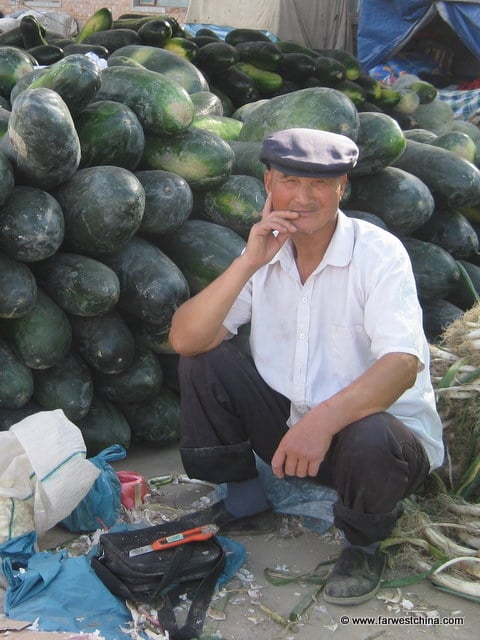
The difference in appearance, though subtle at times, is distinct and the languages are worlds apart.
One reason for this diversity is that Xinjiang shares a border with eight different countries – 8 countries! (Russia, Kazakhstan, Kirghiziastan, Tajikistan, Pakistan, Mongolia, India and Afghanistan). This is just one of many little-known facts about Xinjiang.
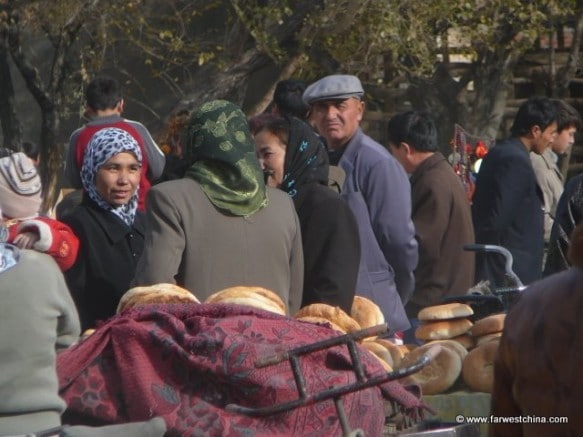
Each group has its own history, its own food, its own music, and its own clothes – discovering all of them would take more time than you could spend here.
Xinjiang is a breath of diverse air within China’s mostly homogeneous society.
Try Xinjiang’s Amazing Food
Without a doubt, one of the most memorable parts of visiting Xinjiang is its food.
It’s not just that it’s different, because every province has its own “special” foods. What makes Xinjiang food unique is that it represents flavors and tastes from all over the world.
The two biggest ethnic groups – the Han Chinese and the Uyghur – also provide two of the most common types of food you can find here, but other smaller groups such as the Hui and Kazakhs have made their mark on Xinjiang’s cuisine.
- Chinese Food – The newest member of Xinjiang’s food is the Chinese food, and if you’ve already made your way around China you won’t find much new here. Each restaurant has its own style, so I’m not saying there aren’t good Chinese restaurants, but the food served has not originated from Xinjiang – it migrated here.
- Uyghur Food – The most popular food group for visitors is the Xinjiang Uyghur food. The biggest difference between this and Chinese food is the use of lamb as the primary meat for all dishes – you can’t escape it! Fortunately, these people know how to cook lamb. Popular dishes include lagman, a rice pilaf called Uyghur polo, delicious Uyghur bread or the famous lamb kebabs.
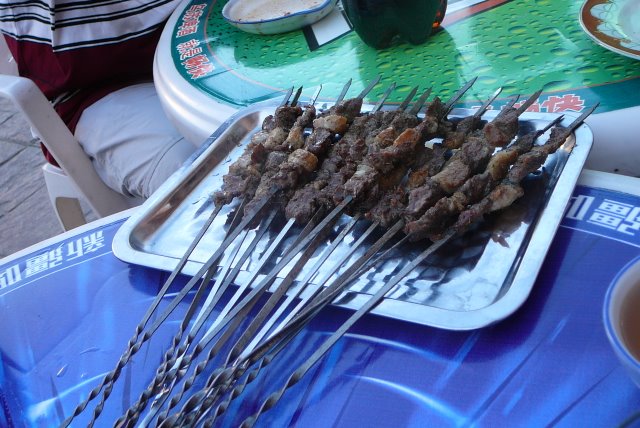
- Hui Food – Hui people, better known as the “Chinese Muslim” group, make up a much smaller percentage of the population than Uyghur or Han Chinese, but one dish of theirs has been made popular all over China – DaPanJi, or “Big Plate Chicken”. This mixture of large chunks of chicken, potatoes, peppers, and a famous red sauce is imitated in all the big cities in China (notably in the Xi’an Muslim Quarter), but it’s never quite the same. Just one taste at a small, hole-in-the-wall Hui restaurant in Xinjiang and you’ll recognize the difference. It’s absolutely incredible.
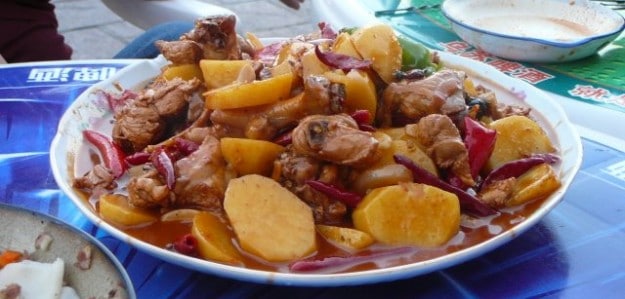
- Kazakh Food – One of the least known specialty foods in Xinjiang comes from the Kazakhs. The reason for this is that most Kazakh people live along the outside of Xinjiang near the borders that are visited by only a few foreigners each year. My favorite dishes here are the milk teas and yak milk soups.

Understand Xinjiang’s Relative Obscurity
Obscurity, as defined by Webster’s Dictionary, is something that is “not readily understood” or “relatively unknown“.
Just because something is obscure, though, doesn’t mean it is interesting.
Burkina Faso is an obscure country, but that in itself is not enough of a reason to make me want to visit. Kansas is an obscure state in the U.S., but how many people have that on their wish list of places to travel?
Alaska, however…now’s that’s an obscure state I want to see someday! The beautiful French Polynesia is a country (or rather a French territory) whose beaches I wouldn’t mind walking on in the near future.
So what is it that differentiates Kansas from Alaska, Burkina Faso from French Polynesia? What makes one obscure place boring and another exciting?
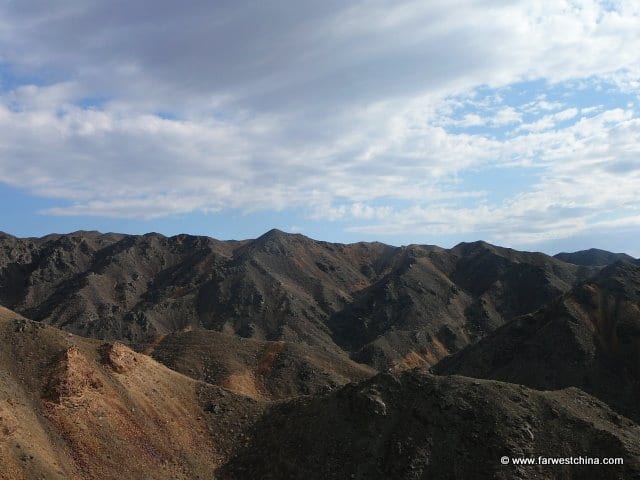
The answer lies in one word: mystery.
A mysterious part of the world is one which no book could properly explain (although I’ve tried my best!) and no photographer’s lens could adequately capture (although many photographers have valiantly tried).
Although a place’s mystery is usually associated with its natural beauty, such mystery can also be found in its people, history, and culture. It is this very mystery incorporating all of theses characteristics which make Xinjiang such a special place to live or visit.
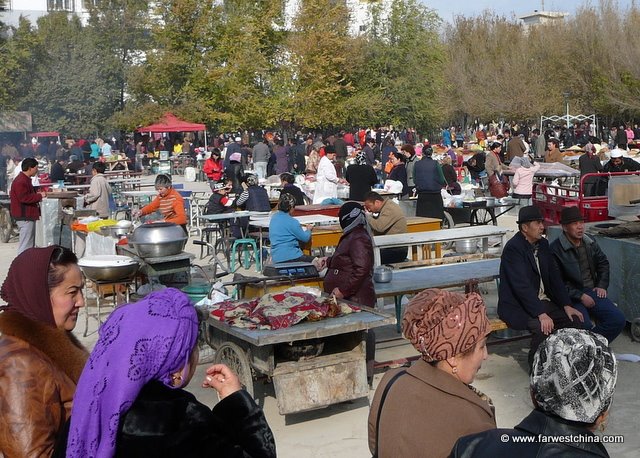
Many provinces in China can be considered obscure, but very few elicit a “wow” response from other Chinese people throughout China.
For example, if you travel to Beijing or Shanghai and tell them that you live in the Gansu, Qinghai, or Guizhou provinces, you’ll probably get a simple “Oh, that’s nice” response.
Tell them you’re from Xinjiang? “Really?! Wow! What’s it like?”
Why is that?
For starters, Xinjiang is relatively new to the China scene, at least when compared to the rest of China, so it carries with it a sense of mystery and raw beauty that is alluring to those who have never been there.
It also comes with many curious stereotypes that people want confirmed, some true and others false. Examples of such stereotypes include:
- Everyone in Xinjiang is poor (which is false, but an understandable deduction)
- Xinjiang is full of terrorists. Also false.
- Xinjiang is unbelievably cold. This is true, but it’s also extremely hot during the summer.
- Xinjiang is majestically beautiful. True.
I could try to explain all that makes Xinjiang so alluring, but as John Mayer says in one of my favorite songs of his, “Maybe I will tell you all about it when I’m in the mood to lose my way with words.“
Bask in Xinjiang’s Natural Beauty
There are so many places in China that are worth visiting, but very few of them have such a variety of scenery. Here in Xinjiang you can find huge mountain ranges just a stone’s throw from flat desert. Crystal blue lakes or weird rock formations known as Karamay Ghost City.
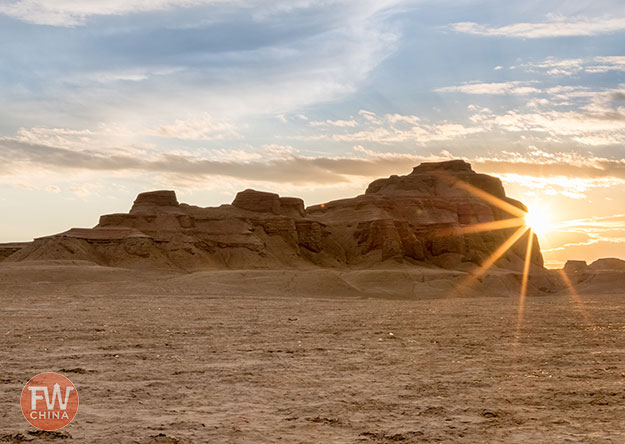
If you’re an outdoor enthusiast or a nature photographer, there’s no better place to be than Xinjiang.
Hiking, mountain climbing, rafting, horseback riding, and camping are just a few of the activities which make experiencing Xinjiang so much fun.
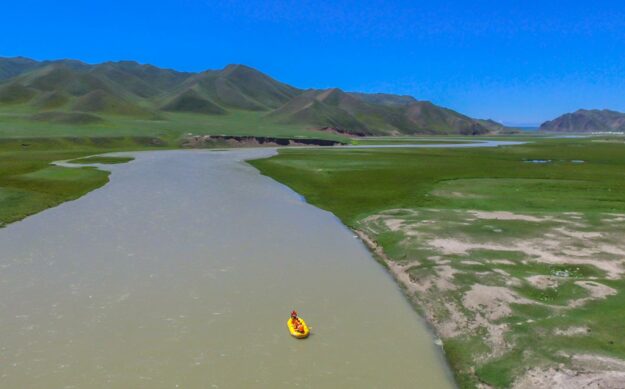
It would be useless to try to explain natural beauty with words, so you can just check out these stunning photos of Xinjiang.
Enjoy Xinjiang’s Lack of Foreigners
Much of Xinjiang is still largely unexplored, and very few foreign travelers make it out this way.
There have been a couple places that my wife and I have visited here in Xinjiang where people have come up to us and said “We are so excited to see you! There has never been a foreigner here before.”
The local police actually had to hold a quick staff meeting to figure out if what kind of paperwork or formalities that had to be done for us to stay there, because they were unfamiliar with the process.
Sometimes this foreigner excitement leads to the annoying stares, unending questions, or greetings yelled from a mile away.
In other ways, being a foreigner brings added attention which isn’t welcome in the current political environment.
Although I believe it’s safe to travel to Xinjiang, be aware that there will be plenty of passport checks and highway checkpoints.
See China’s Authoritarian Rule First-Hand
Josh, how can you promote a place where the government is oppressing and mistreating the Uyghur people?
That’s another question I hear often, and it makes sense.
The fact is that I have used my platform and speaking opportunities to explain what is happening to the Uyghur people in Xinjiang.
Unfortunately, I can talk until I’m blue in the face about how wonderful the Uyghur people are and how terrible it is that China is treating them as sub-human. But when I talk about “millions of Uyghur”, people’s eyes start to glaze over.
It’s hard to empathize with numbers this large.
For this reason, I encourage people to travel to Xinjiang. If you can meet Uyghur people, experience the surveillance state that is Xinjiang right now, and see how people are treated in person…
…this first-hand experience usually translates to empathy and outrage.
I want you to see it all for yourself. Once you do, you won’t be able to deny what is happening, no matter what propaganda you read from Chinese media.
Final Thoughts | Why Travel to Xinjiang
Xinjiang is my second home. It always will be, even if I’m not there anymore.
It’s a place I adore, not because of it’s affiliation with China, but because of its uniqueness.
I hope that you can experience this as well. That’s why I share with you these reasons to live or travel to Xinjiang. It’s not easy. It’s not cheap. It’s not even comfortable.
But it is like nothing else you’ll ever experience.







